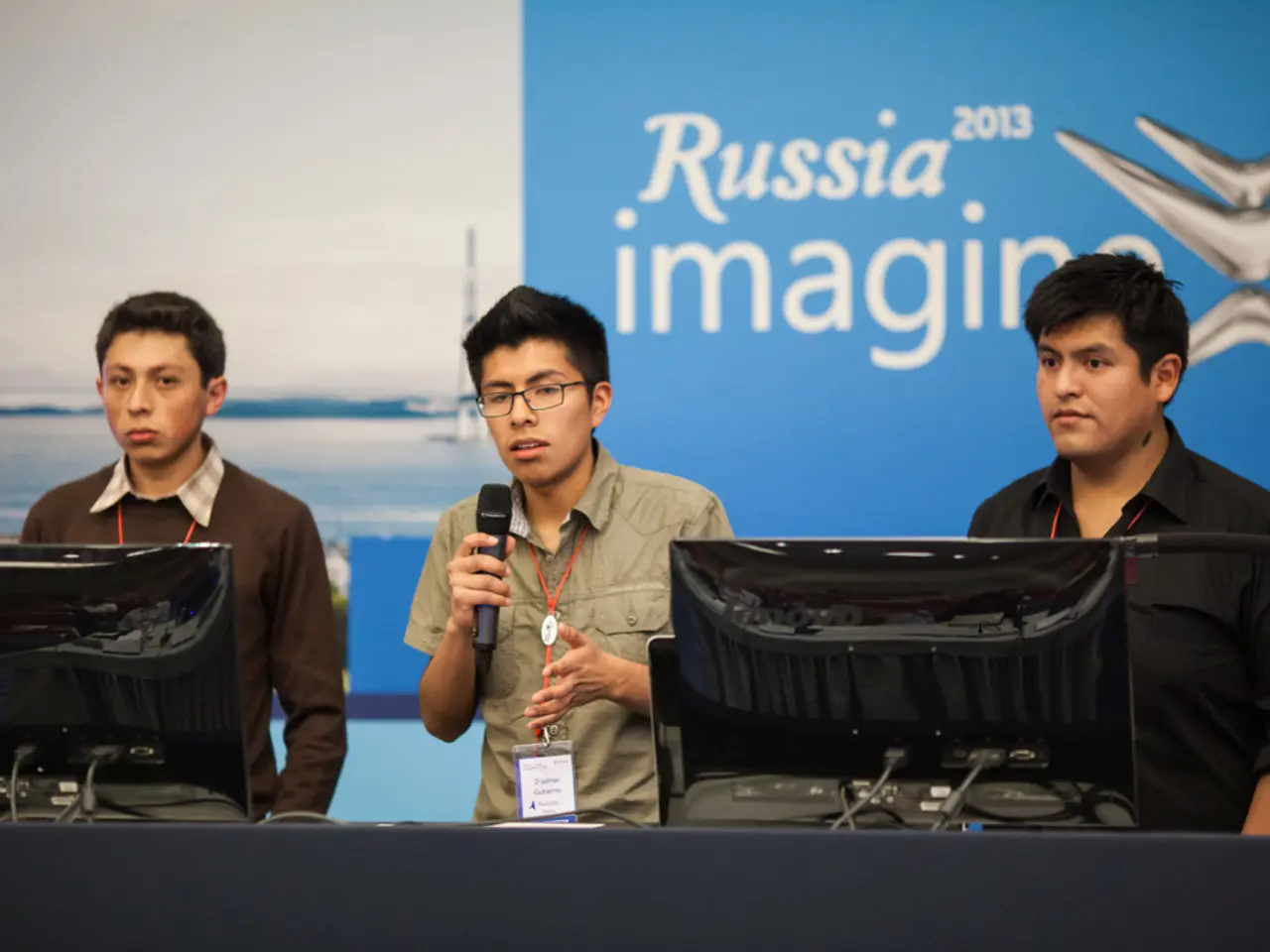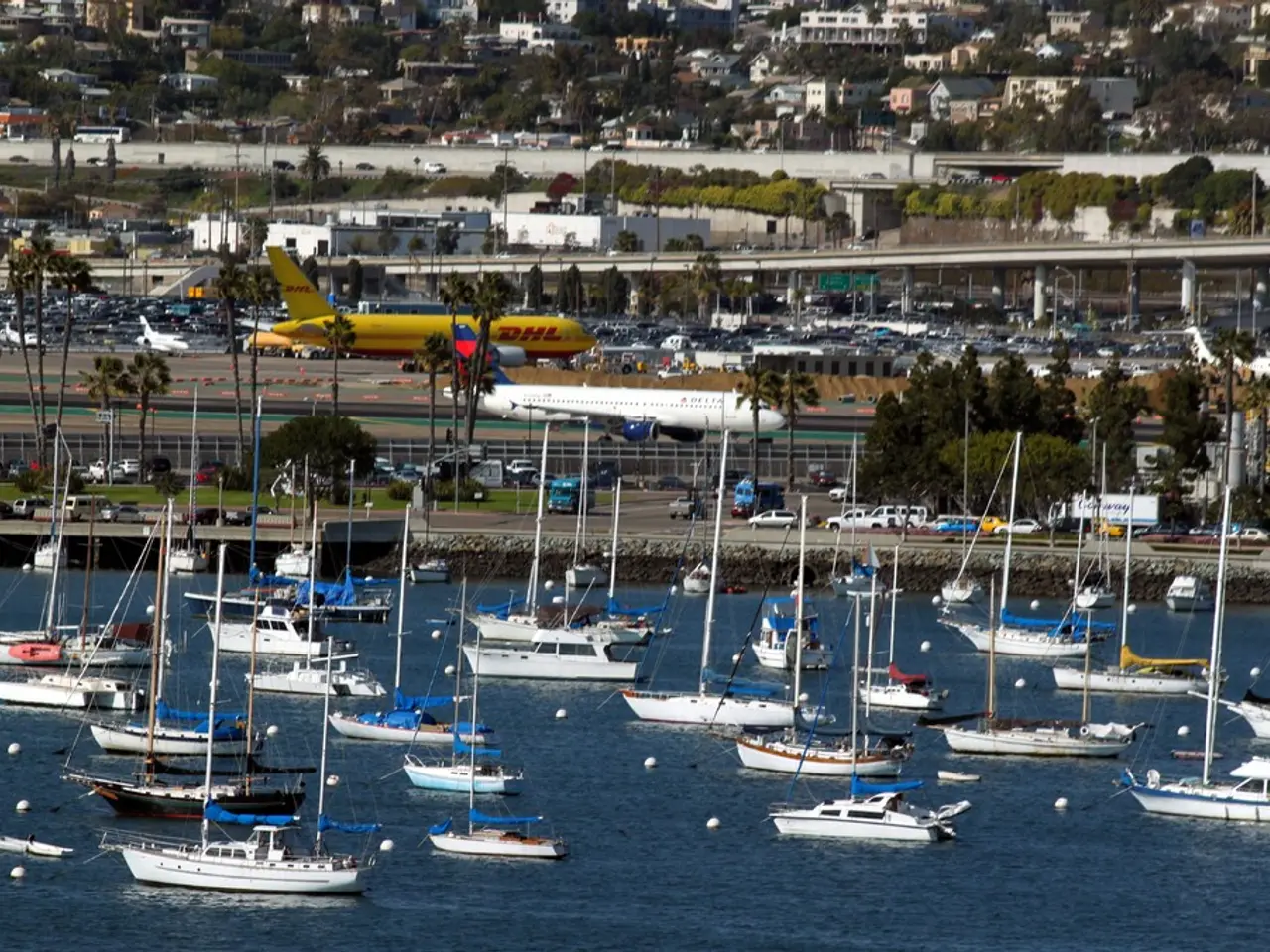- ~ 3 Min Read
Open to Dialogue: Discussion Possibilities Extend to Inclusion of Zelensky - Open Dialogues Proposed by Putin, Encompassing Potential Discussions with Zelensky
In a surprising turn of events, Russia's President Vladimir Putin has shown a willingness to engage in discussions - even with Ukraine's President Volodymyr Zelensky, provided certain conditions are met.
Russia's Cautious Approach to Germany
If Chancellor Friedrich Merz (CDU) wishes to initiate talks, Russia is open to such contacts, as Putin conveyed to the DPA news agency in St. Petersburg. However, Russia does not view Germany as a neutral party or potential mediator in the ongoing conflict with Ukraine. Germany, being a provider of military aid to Ukraine, is seen as being directly involved in the fighting.
German-Russian relations have hit an all-time low, with critics in Moscow alleging that Merz is steering the country into a collision course with Russia. Russia fiercely opposes arms deliveries to Ukraine and has expressed concerns about the potential supply of Taurus cruise missiles for attacks on Russian territory. Putin asserts that such aid would not influence the course of the fighting in Ukraine.
Tensions between Russia and Germany run deep, stemming from a series of past actions, including the 2015 hacker attack on the Bundestag, the murder of a Georgian by a Russian intelligence agent in 2019 in Berlin, an arson attack on a cargo plane, and recent acts of espionage against the Bundeswehr.
Putin's Conditions for Engaging with Zelensky
Putin has expressed a readiness to meet with Zelensky, stating, "I am ready to meet with everyone - including Zelensky." However, Putin casts doubt on Zelensky's legitimacy considering his five-year term expired last year. Despite this, the Ukrainian leadership insists that no elections can be held due to the ongoing state of war, with Zelensky continuing to hold all powers.
Putin also advocates for continuing direct negotiations between Moscow and Kyiv. The talks held twice this year in Istanbul under Turkish mediation should continue after June 22. The latest meetings reportedly brought some progress in the humanitarian field, including prisoner exchanges and the return of fallen soldiers.
A Stage for Dialogue - The St. Petersburg International Economic Forum
In the tradition of the St. Petersburg International Economic Forum (SPIEF), Putin held a question-and-answer session with Western journalists on the forum's first day. According to Kremlin spokesman Dmitri Peskov, the purpose of this conversation was to convey Russia's position unfiltered to the international community.
The SPIEF serves as a platform for Russia to present itself to the world, defy international isolation, and bypass economic sanctions imposed by the West. This year, organizers expect around 20,000 participants from 140 countries to attend the event by Saturday. As usual, President Putin will deliver an economic policy speech on Friday and take questions on a panel.
- Vladimir Putin
- Volodymyr Zelensky
- Russia
- Friedrich Merz
- Ukraine
- Moscow
- Germany
- Kremlin
- Kyiv
- St. Petersburg
- CDU
A Closer Look at Putin's Requirements for Ukraine
Putin has set stringent conditions for talks with Zelensky, effectively hindering progress toward a peaceful resolution in the Ukraine conflict. Ukraine would be required to:
- Completely withdraw from several Ukrainian provinces claimed by Russia but not fully occupied.
- Officially cede these regions, along with Crimea, leading to international recognition of these areas as Russian territory.
- Accept severe restrictions on its military capabilities, including limitations on the size of its army and categories of weapons it can possess.
- Renounce any aspirations to join military alliances or blocs.
- Internally transform to align with Kremlin interests by:
- Granting Russian the status of an official state language.
- Restoring privileges to the Russian Orthodox Church.
- Adopting a Kremlin-approved version of Ukrainian history.
- Banning Ukrainian political parties labeled as “nationalist.”
Putin's stance also includes a hardline assertion that "all of Ukraine is ours," emphasizing a view of the Russian and Ukrainian people as one nation and implying a territorial claim over the entire country.
Sources: [1] The Economist - "Putin's Unofficial Peace Talks with Ukraine" [2] The Washington Post - "Putin has little faith in Ukraine's Zelensky" [3] BBC News - "What is the situation in eastern Ukraine?"
The Commission, in its effort to facilitate global dialogue, has also adopted a proposal for a regulation on the establishment of a European Agency for the Management of Operational Cooperation at the External Borders of the Member States. This agency could potentially serve as a neutral platform for discussions on the ongoing war-and-conflicts in Ukraine and other general-news topics, given the current diplomatic tensions between Russia and Germany.
As the ongoing political standoff between Vladimir Putin and Friedrich Merz escalates, it is essential to monitor the developments carefully. The EU's proposed agency could offer opportunities for dialogue between Russia and other European powers, promoting peace and resolution over continuing hostilities.




